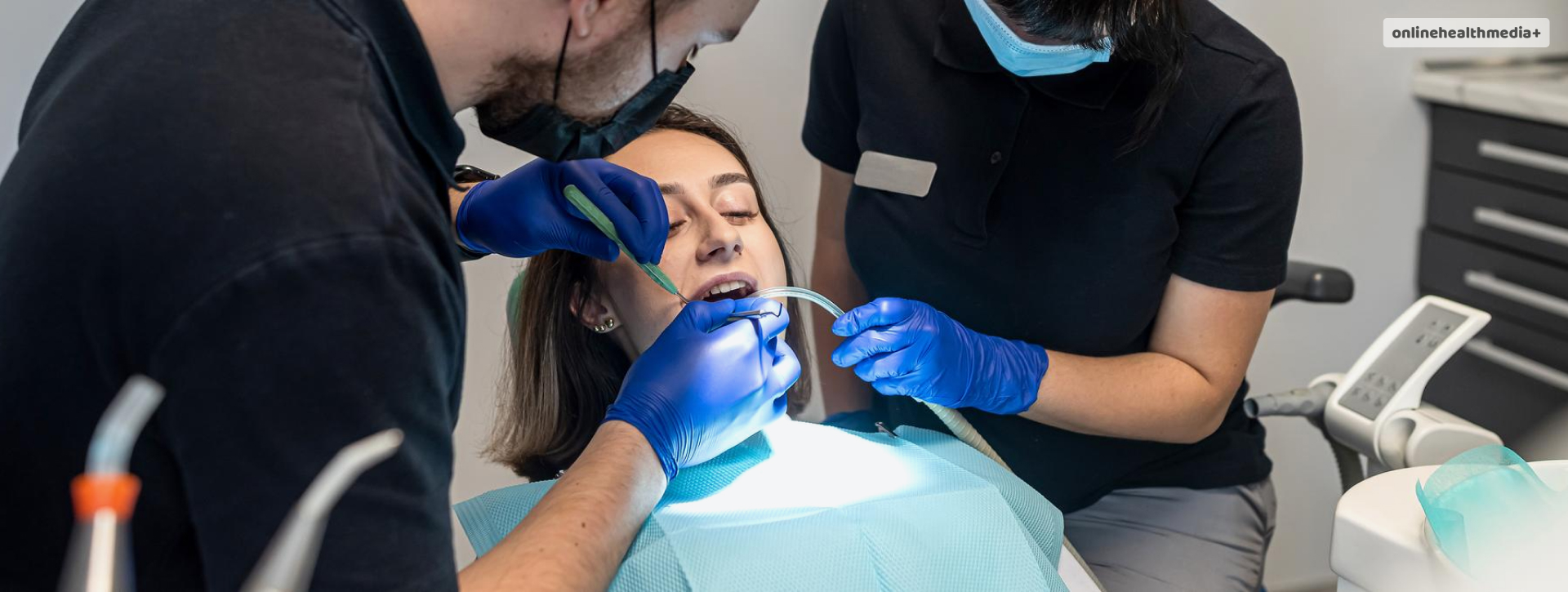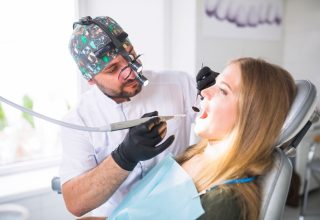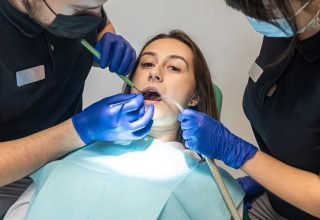Your Comprehensive Guide to Dental Emergencies
Toothaches that throb in the middle of the night, chipped enamel from unlucky encounters with tough candy, or maybe the shock of a knocked-out enamel dental emergency can strike unexpectedly, leaving you scrambling for answers and answers. While the initial panic is understandable, knowing what to do could make all of the distinction.
This comprehensive guide equips you with the knowledge and gear to navigate dental emergencies in Saskatoon with confidence, minimizing strain and maximizing your probabilities of a smooth recuperation.
Recognizing the Telltale Signs:

First things first, allow’s distinguish emergencies from minor inconveniences. A chipped tooth from a difficult candy would possibly require a visit to your dentist, however, it would not be taken into consideration as an emergency.
However, knocked-out teeth, an agonizing toothache that refuses to depart, facial swelling that makes you unrecognizable, or uncontrolled bleeding needs immediate attention. Remember, dental emergencies saskatoon can escalate quickly, so it’s crucial to apprehend the caution symptoms:
- Knocked-out tooth: Act fast, because time is of the essence! Rinse the enamel gently with milk (in no way water!), cautiously preserve it back in its socket without touching the foundation, and seek on-the-spot expert help.
- Severe toothache: Throbbing pain, especially at night time, could imply contamination. Rinse with warm salt water, follow a chilly compress on your cheek to lessen irritation, and don’t forget the over-the-counter pain remedy (don’t forget, it is brief alleviation – dental emergencies in Saskatoon require professional intervention).
- A broken crown or misplaced filling: While now not existence-threatening, they divulge sensitive enamel surfaces and can lead to further headaches. Schedule an appointment with your dentist as soon as possible to save you similar damage.
- Abscessed enamel: This extreme infection reasons severe pain, swelling, and even fever. Don’t postpone – are searching for instant expert attention at an emergency dental sanatorium or clinic to prevent the contamination from spreading.
- Facial swelling: This symptom can accompany diverse dental emergencies in Saskatoon and calls for set off expert assessment to pick out the purpose and prevent headaches.
Other Dental Emergencies That Need Immediate Action
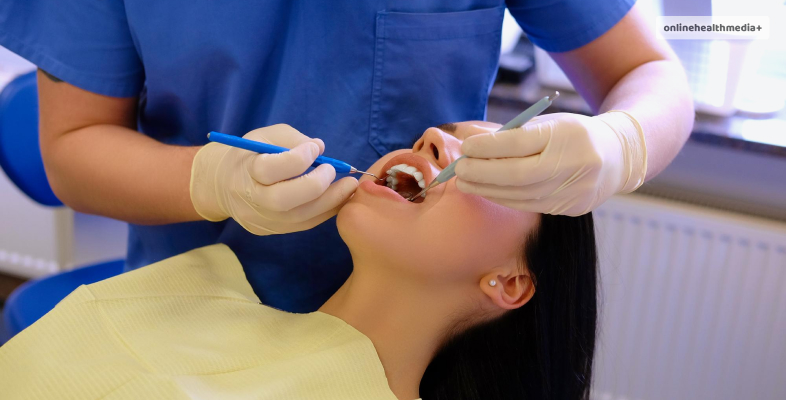
Some emergencies may be so severe that you will need immediate professional attention such as through hospitals. The best option in such cases is going directly to the emergency ward of hospitals and seeking immediate care. These issues may be:
- Jaw dislocation
- Jaw fracture
- Severe cut to the mouth or face
- Infection or abscess that increases swelling, impacting breathing as well.
A life-threatening dental emergency requires the expertise of an emergency dentist. This will help in alleviating pain, while also looking into your dental emergency.
Taking Action: Self-Care Strategies (But Remember, They’re Not Substitutes!)
Now, permit’s speak self-care. While those tips can offer temporary remedies for a few dental emergencies in Saskatoon, don’t forget there are now no substitutes for expert dental care:
- Toothache: Rinse your mouth with heated salt water, floss lightly to eliminate any food particles, and apply a cold compress to your cheek to reduce swelling.
- A damaged crown or lost filling: Use sugarless chewing gum to briefly cover the uncovered place and guard it against further inflammation.
- Bleeding: Apply mild pressure with a smooth gauze pad to the bleeding region. If bleeding persists, immediately start searching for instantaneous expert help.
When to Seek Help: Don’t Wait Until It’s Too Late
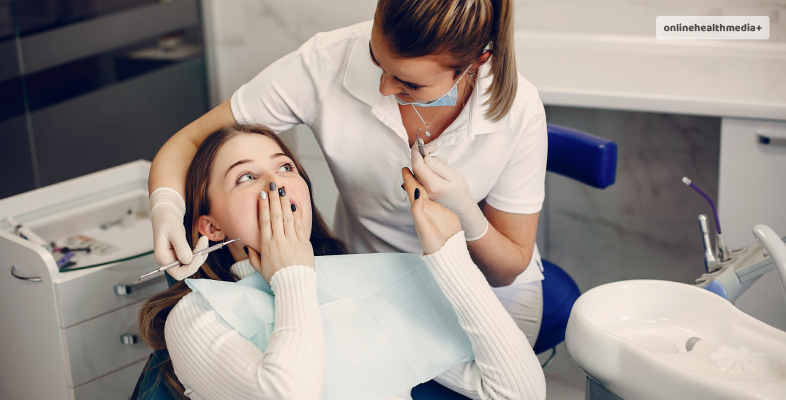
But while you need to make that essential call to the dentist? Don’t postpone if you enjoy:
- Severe ache that doesn’t reply to over-the-counter medicinal drug
- Facial swelling that interferes with respiration or talking
- Persistent bleeding you can not manipulate
- Signs of infection, which include fever or pus drainage
- Difficulty respiration or swallowing
Remember, set-off movement is critical in dental emergencies. For immediate care outside ordinary dental hours, take into account:
- Emergency dental clinics: These clinics provide specialized care for urgent dental needs, often operating extended hours and weekends.
- Hospital emergency rooms: While not perfect for habitual dental issues, they could provide initial pain management and assessment for intense emergencies.
Prevention is Your Best Defense:
Prevention is usually better than remedy, and your oral fitness plays an important position in minimizing dental emergencies in Saskatoon. Regular dental checkups and cleanings allow early detection and intervention, whilst proper oral hygiene practices like brushing two times daily and flossing regularly hold your smile healthy.
Additionally, bear in mind protection measures like mouthguards for athletes and fending off difficult chocolates to prevent chipped teeth.
Home Remedies To Help You Control The Dental Emergencies

After you have been provided dental care for your emergency, it is necessary to ensure you are also taking care to prevent its return. Emergency dental health provider will provide you with the necessary information to prevent its return. However, here is a list of all that you can do at home to prevent your dental emergencies from escalating:
- Rinse mouth with warm water after your meals, or at least at night before sleeping
- Put a cold compress on the affected area. This can be applicable when you have gotten a surgery or a procedure done. Or when you are waiting for assistance.
- Use pain relief gels that can help you manage the pain. Your dentist can provide you with such ointments.
- Rinse with salt water frequently to maintain good oral health.
Daily habits that can help you avoid dental health emergencies:
- Brushing properly can not just help in avoiding bad breath, it also ensures there is no buildup on your teeth. Most people see brushing as an act to get done with once in the morning. That’s not the case if you want to avoid plaques, bad breath and overall dental health.
When you ignore brushing your teeth, you are allowing plaque to build up, harden, and cause calculus buildup. This buildup can cause early gum disease, gingivitis.
- Flossing is another way to improve your oral health so that there are no food particles stuck between your teeth. Brushing is not 100% successful in removing dirt from between the teeth, which makes it hard for you to avoid dental emergencies.
- Brushing at night is an important nighttime routine that can help control tooth decay by bacteria. The germs that can slowly cover our teeth to “eat” what is stuck on the teeth.
- Clean your tongue. Plaque buildup can be on the tongue as well. Gently clean your tongue with either your brush, or with a tongue cleaner to get rid of the maximum buildup.
Empowering Yourself for a Healthy Smile
By staying knowledgeable, organized, and proactive about your oral fitness, you may extensively reduce the possibilities of dealing with dental emergencies in Saskatoon.
Remember, this manual empowers you to navigate surprising situations frivolously and successfully, ensuring you may get the timely professional care you want to preserve a healthful, happy smile. So, breathe easy, be prepared, and face any dental assignment with confidence!
More Resources:
- Discovering Top-Notch Dental Care In Elkhart, In: Your Guide To Finding The Best Dentist
- A Unique Guide To Selecting The Perfect Charleston Dental Implant Virtuoso
- An Overview Of Dental Implants: Varieties And Applications
